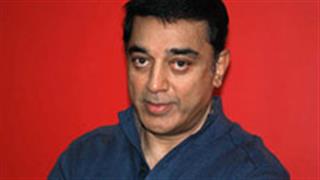Excerpts of an interview with Javed Akhtar
How does it feel to finally have the Bill for the amendment to the Copyright Act passed?
The Standing Committee had long cleared the Bill with minor tweaks here and there. From my interactions with the representatives across the board I knew that it had garnered unanimous support from all.
There was much bad blood within the industry over the issue. Why is royalty to lyricists justified when you are being paid upfront for a song?
We are not inventing royalty. It's very much present there. Producers and music companies have a memorandum of understanding to share on basis of 50-50. Besides films and music albums, they also earn from those songs being played on FM radios, TV channels, in hotels etc.
There are two kinds of royalty on songs all over the world. They are sound recording royalty and performing royalty. There are societies dedicated for the same (PPL and IPRS).
The music companies as publishers of the music owe the song writers royalty and comply with the norm the world over. It's only in India that there was so much confusion created over it.
The government with this Act has made that commitment of music companies mandatory in India as well. It surprises me that Indian companies which are signatories to the international societies that uphold this commitment have been opposing that commitment here!
Don't you write songs for a particular situation in a film after discussions with the director?
Like a portrait that an artist makes for you, if you re-sell it you have to pay 10% on the second sale to the artist. So it's with lyricists. The director does discuss the situation for a particular song with the lyricist, but then demand is not contribution.
Even if the idea is given by another person, you can't copyright an idea. It is the product that can have copyright and as the creator of the product the copyright rests with the writer. In India all this is present on paper.
We are all signatories to IPRS. But when it comes to executing what we have agreed upon we dilly dally and start coming up with excuses and create confusion.
Doesn't the principle of ‘work for hire' apply to film songs?
No, it doesn't. We don't provide service. Everything is on contract basis. When we are talking of it as a film ‘industry' we are seeking the benefits that come with it. But no one is willing to fulfill the obligations that are mandatory for all in the industry.
There's no concept of gratuity or provident fund or any other benefit that workers in other industries usually get from their employers. Here people want to have the cake and eat it too. The funny thing is, when we sign the contract we are asked to surrender our rights so that we don't claim the rights in future.
Isn't it strange that you are admitting that we have such rights and that's why you make us sign contracts so that we give away our rights to you?

The High Courts of both Delhi and Mumbai had earlier ruled that gramophone companies and FM radios need not pay additional royalties to composers or lyricists as they pay a license fee. It's not like this anywhere in the world. How can it be not effective in India which is a signatory to both Marrakech Agreement and Berne Convention?
The Berne Convention requires its signatories to recognise the copyright of works of authors/artists from other signatory countries in the same way as it recognises the copyright of its own nationals.
For example, English copyright law applies to anything published or performed in the UK, regardless of where it was originally created.
The Agreement on Trade Related Aspects of Intellectual Property Rights (TRIPS) that was agreed upon under the Marrakech Agreement is an international agreement administered by the World Trade Organization (WTO) that sets down minimum standards for many forms of intellectual property (IP) regulation as applied to nationals of other WTO members. India is a signatory to both.
This is an international issue. We get millions of dollars from outside India precisely because we follow the above agreements. Whenever music from abroad is played here money is paid.
How come then for our own composers and lyricists the rules are changed? I was quite surprised at the judgments but now with the new Act all such concerns can hopefully be put to rest.
Is there any singer today who performs only on the terms of royalty (as Lata Mangeshkar did)?
Lata Mangeshkar did not perform only on terms of royalty. She also took up-front money. But this is a question you should ask the singers, not me. Personally all I can say is that Lataji's approval of the amendment is the final seal for me.
How much support did you have within the Indian music industry?
We had the support from everyone. Our signatories include well-known names from the world of classical music like Pandit Ravi Shankar, Pandit Shiv Kumar Sharma, Pandit Hari Prasad Chaurasia - to name a few, to AR Rahman, Gulzar and many others.
Singers too have supported us even though they don't come under the purview of copyright. I feel singers too should not be left high and dry and be given some sort of royalty for their contribution.
Many powerful producers had been up in arms against you for fighting for copyright amendment in favour of lyricists and singers. What now?
Now that the amendment is a reality I don't mind a lifetime ban. Producers can stop giving me work completely. But royalty has to be paid. This amendment in the Rajya Sabha is a huge boost to all artists who work hard and contribute to the making of films. It's not only for producers and owners of music companies to reap the benefits of the hard work of so many.
Are you writing songs for any albums outside films?
I have done quite a few albums but there's nothing on right now. I'm not exactly a blue eyed boy of the music industry right now, you see!




















